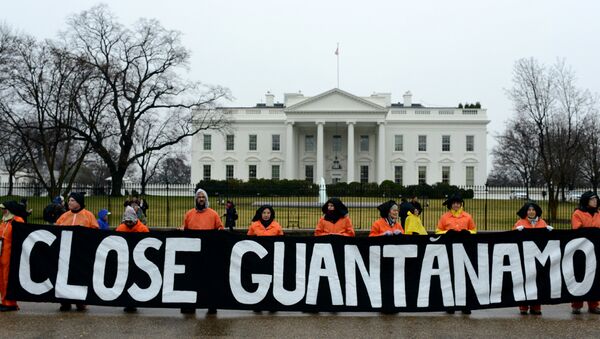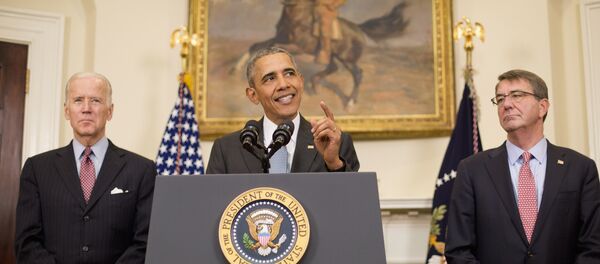Nearly eight years after promising to shutter Guantanamo Bay as his first executive action, President Obama has finally submitted a plan to Congress to terminate the facility.
The Obama Administration has long argued that the terrorist detention facility, the site of leaked photos of torture and dehumanizing embarrassment, functions as a potent propaganda tool in the hands of extremist organizations like ISIS and al-Qaeda. Echoing this sentiment, former CIA Director David Petraeus had argued that closing the facility served America’s vital national security interests.
But recent studies on jihadist organizations indicate that these terrorist groups hardly reference Guantanamo Bay at all. References to the facility to incite extremist passions have declined in recent years, as Daesh has overtaken al-Qaeda as the leading terrorist organization worldwide. Daesh emphasizes conquest and Islamic utopia in targeting disaffected youth for radicalization. The terrorist organization’s calls to action often include references to the surreal and imaginary, with frequent comparisons to fantasy video games.
Some experts argue, however, that while the terrorist detention facility is not a featured component of radical propaganda, it nonetheless feeds into the narrative these organizations exploit. Charlie Winter, a terrorism researcher at Georgia State University says, "Guantanamo fits into a broader motif of Muslims unjustly imprisoned and under assault by the West, whether that’s in Cuba, Afghanistan, or Iraq."
Human rights advocates argue that the national security imperative is the wrong framework for justifying the closure of the facility. Legal scholars have argued for nearly a decade that, for the majority of detainees, there was insufficient evidence to establish an individual’s connection with terrorist organizations, and insufficient grounds if due process were employed to detain them, at all.
One human rights activist argues that indefinite detention without judicial process under harrowing conditions of torture and humiliation represents cruel and unusual punishment repugnant to American moral standards and any basic sense of human decency.
The Obama Administration has long refused to take a human rights position for shuttering the Guantanamo facility, arguing instead that the prison "undermines our standing in the world, it is viewed as a stain on our broader record of upholding the highest standards of rule of law."
For his part, President Obama issued an executive order in 2008 preventing new prisoners from being sent to Guantanamo Bay. The president issued calls for reforms in the processing of detainees, although limiting their judicial rights to those of the Uniform Code of Military Justice used by military tribunals, not civilian courts.
Guantanamo’s absence from Daesh propaganda isn’t surprising. The violent extremist group rose to prominence years after the Obama administration took steps to limit, although not completely undo, the human rights offenses at the facility.
Although the news is not surprising, it is nonetheless concerning. Research suggests that Daesh will be able to attract new adherents to their "caliphate" regardless of the American position on the detention facility or torture. Factors motivating the extremists are a thirst for power, to belong to an entity perceived as being greater than oneself, and a license for violence against sectarian rivals.
Unfortunately, this means the Obama Administration will likely face an uphill battle in the near future both in closing Guantanamo Bay and in combating the spread of the religious fundamentalist terror group.






